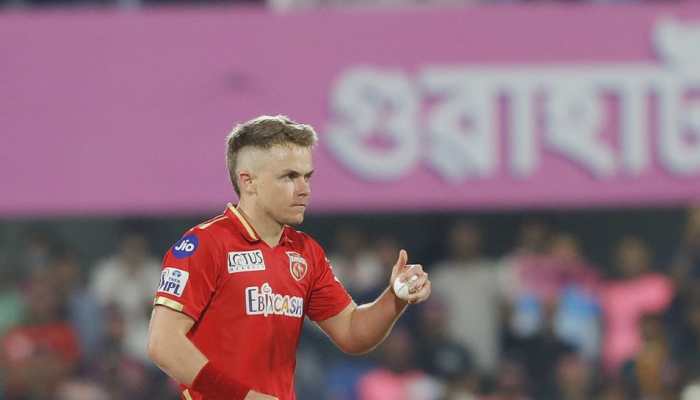Central Africans flock to vote in push for peace
Voters in the Central African Republic flocked to the polls Wednesday in apparently peaceful elections seen as vital to restore stability after years of inter-religious bloodshed.
Trending Photos
)
Bangui: Voters in the Central African Republic flocked to the polls Wednesday in apparently peaceful elections seen as vital to restore stability after years of inter-religious bloodshed.
The UN peacekeeping mission called the presidential and parliamentary vote, which comes just weeks after a referendum marred by violence, "a success".
Three men -- all experienced politicians who have held senior government posts -- are seen as front-runners in a presidential race with a total of 30 candidates.
Queues had formed in the capital Bangui even before the start of polling in the deeply poor country, which was finally taking place amid high security after several delays.
Voting was extended beyond the scheduled 1500 GMT close in numerous stations where logistical hitches had delayed voting, including the flashpoint Muslim enclave known as PK-5.
UN troops were patrolling the neighbourhood which has been a focal point in clashes between rebels from the Muslim minority and Christian militias and where five people were killed during a constitutional referendum on December 13 that paved the way for the vote.
But the enthusiasm of people to try to turn the page on years of instability was undimmed.
"I am voting because I`m patriotic. To rebuild the country, the hospitals and schools," 27-year-old Ousmann told AFP.
His sentiments were echoed by another voter, civil administrator Philippe Bodo.
"We have to change the destiny of the country. But this time the will of the people must not be hijacked," he said.
The elections were put back to Wednesday from Sunday because of delays in distributing ballot papers and voters` cards and in training election officers.
In the December 13 referendum, 90 percent of voters backed a new constitution which limits presidential mandates to two terms among other reforms.
UN chief Ban Ki-moon called for a peaceful vote, saying on Tuesday that the fact that two million people had registered to cast their ballots was a "clear demonstration of the population`s engagement to exercise their democratic franchise".
"We are completely satisfied, this is a success," said Parfait Onanga-Anyanga, the head of the UN`s peacekeeping mission MINUSCA.
"Honestly, we have performed a miracle in a country at war," added MINUSCA military chief Balla Keita, a general from Senegal.
Some 11,000 UN peacekeepers as well as French troops are helping to protect the polls.
The mostly Christian country has been rocked by violence since veteran president Francois Bozize was ousted in a March 2013 coup by the mainly Muslim Seleka rebel alliance, which installed Michel Djotodia, the first Muslim head of state.
Djotodia quit in January 2014 after disbanding the Seleka, but attacks on Christians by rogue Muslim forces led to brutal reprisals against Muslim districts by "anti-balaka" ("anti-machete") militias from Christian communities.
Thousands were slaughtered in a spiral of atrocities that drove about one in 10 people in the former French colony of 4.8 million to flee their homes.Despite the presence of the UN and French peacekeepers, large chunks of the country remain out of bounds, either under the control of rebel chieftains or bandits.
At least 1,800 people are running for a place in the 105-seat National Assembly, but the National Elections Authority (ANE) had not cleared a final slate by Tuesday.
Two of the three men leading the presidential race were prime ministers under late president Ange-Felix Patasse: Anicet Georges Dologuele and Martin Ziguele, who are both Christian.
The third, Abdoul Karim Meckassoua, is a Muslim who served under Bozize from 2003 to 2013 in successive posts, including foreign minister.
Casting his ballot in Bangui, Dologuele hailed the "great enthusiasm" of voters, adding: "This election is important in ending the suffering of people in Central Africa."
Ziguele called the election a chance "to take back control of our country`s destiny".
"Even if there are some glitches, if some voting papers don`t arrive in some areas, people must vote."
The country`s three last presidents were barred from standing again: former Bangui mayor Catherine Samba Panza, who has overseen a political transition, as well as Bozize and Djotodia.
Bozize and Djotodia are both in exile and under UN and US sanctions linked to the violence.
The count is expected to take several days, and the presidential vote is expected to go to a run-off on January 31.
Stay informed on all the latest news, real-time breaking news updates, and follow all the important headlines in india news and world News on Zee News.
Live Tv







)
)
)
)
)
)
)
)
)
)
